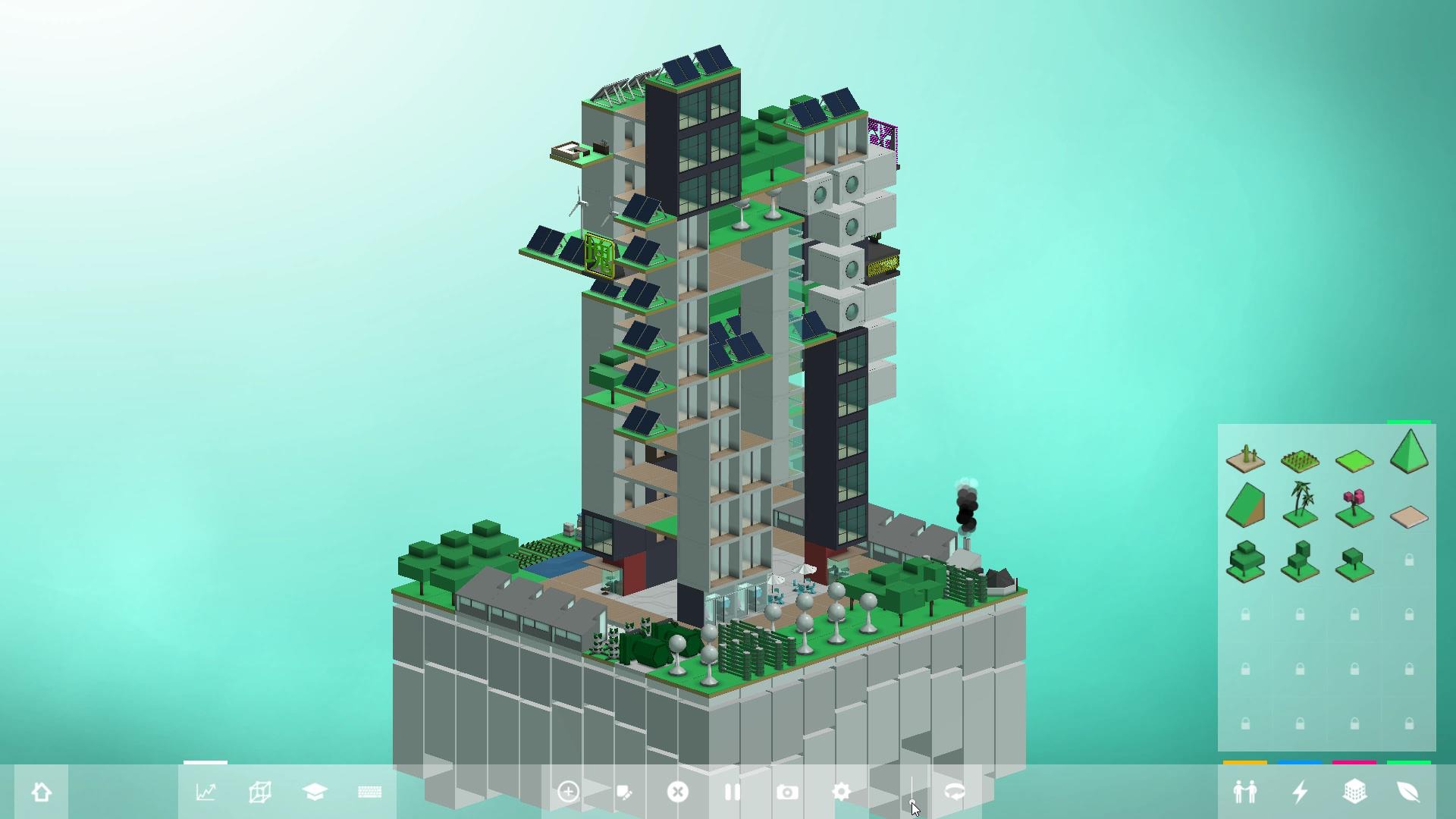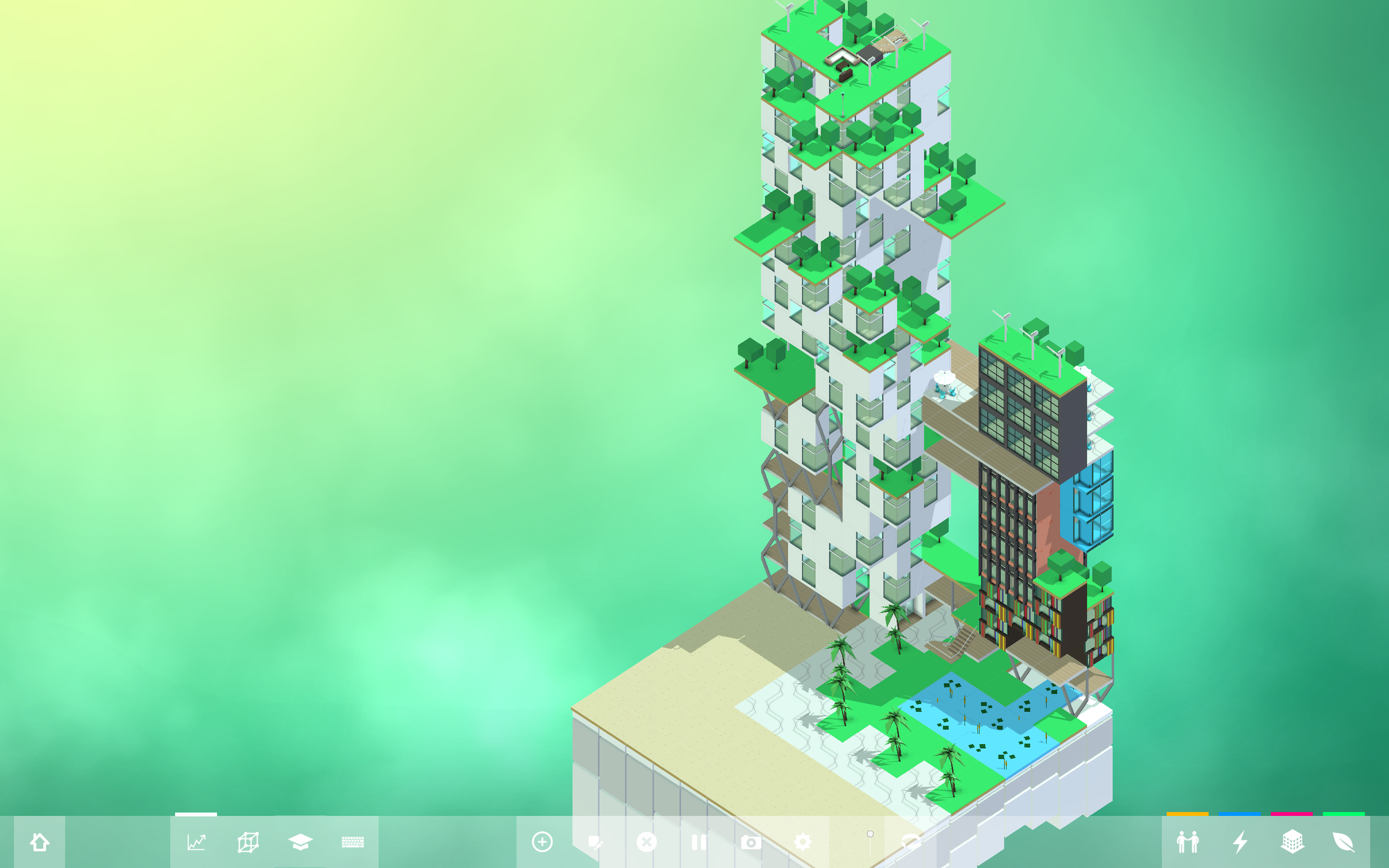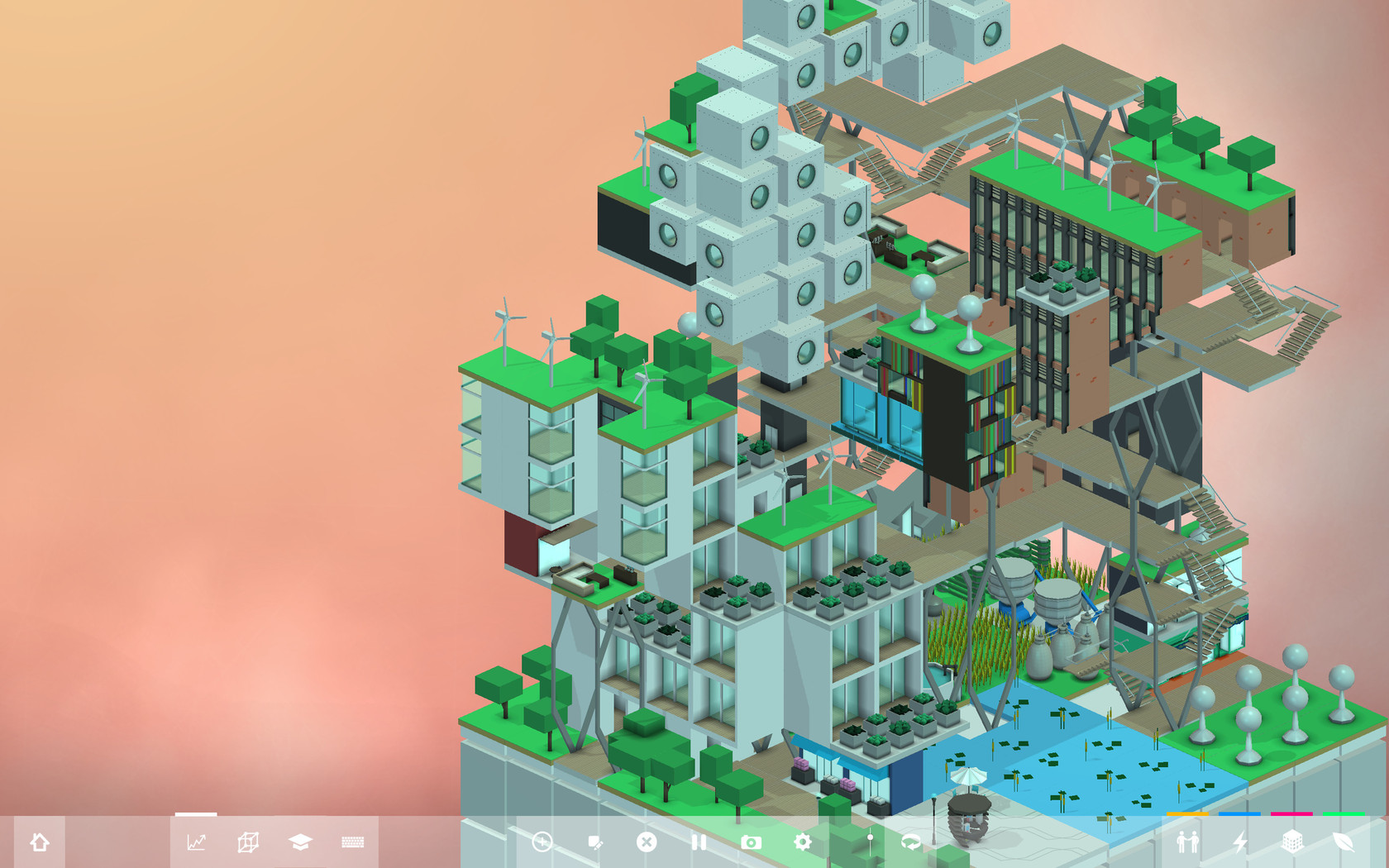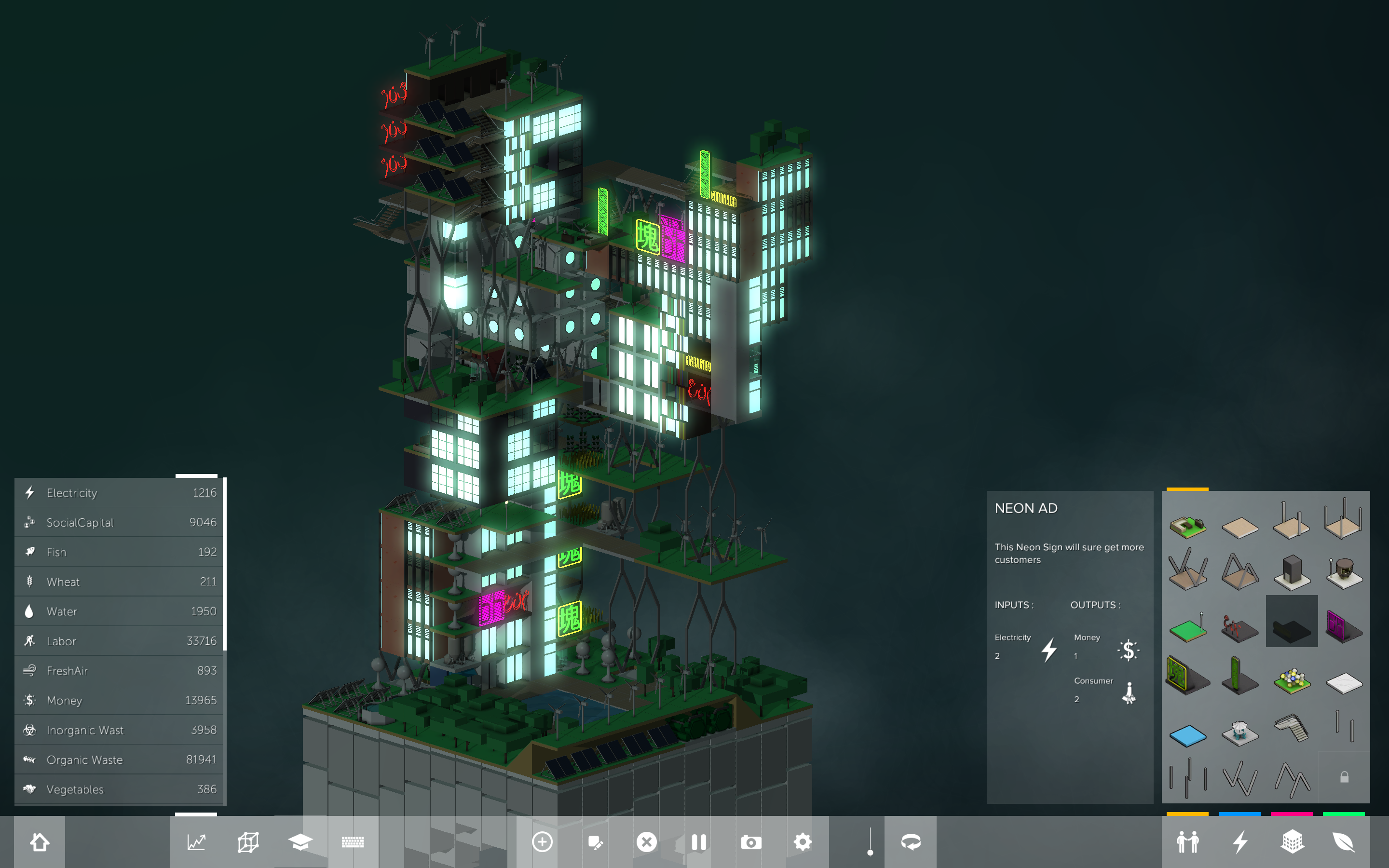Games for Cities
Block'hood (2016)
Los Angeles [US]
Developed by:
A digital game built on ideas of ecology and entropy, teaching players the concept of circularity and of the interconnected challenges that cities face, requiring players to keep their neighbourhood in equilibrium at all times.

As a single-player computer game, you face interconnected urban planning challenges as you design a vertical neighbourhood in space. This subtly teaches urban planning concepts of higher-density and mixed-use living. While there is a ‘sandbox’ option where you’re free to design your neighbourhood around your own chosen functions, there are also a range of challenges in the game that require building towards a specific goal. All building blocks have an input and an output and its your job to keep your neighbourhood in equilibrium as you build it up.
For example, a tree might need water to create oxygen, and a shop might need consumers to create money; as you add apartment blocks, you must add more trees to produce enough oxygen for inhabitants. Creating a productive network requires understanding how each block is dependent on other blocks. The game has 20+ resources, with each block requiring and producing its own, so the amount of relations are enormous. You manage a complex ecosystem of resources and ensure that nothing falls into deficit – if blocks don’t get the inputs they need, they will decay over time, and slowly become abandoned or destroyed.
Block’hood has been developed in an academic environment, with the aim of teaching players about the interconnected challenges that cities face. It is an engaging educational experience that provides an understanding of how a product sits within an ecosystem. ‘Education mode’ is an extended tutorial that takes the player on a journey looking at current technologies and how they work. Originally conceptualised as a card game, each new block introduced to the game affects every other, simultaneously creating new relations and rendering other blocks more beneficial or obsolete. In this way, the game does well to mirror the interconnected complexities of city development in reality, and the need to keep urban developments in balance with one another.


